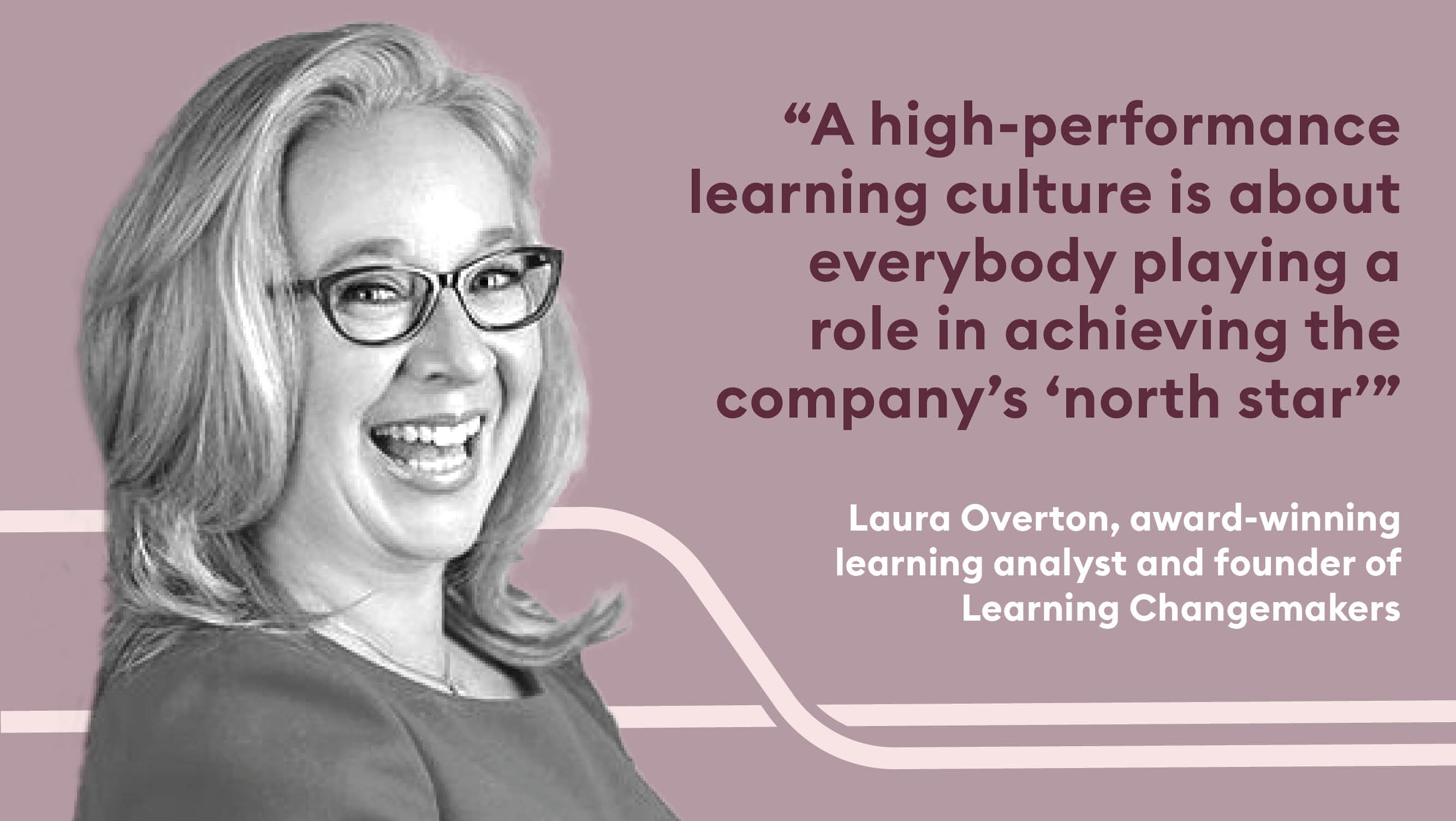Our transformation curve takes in 15 years of research and thousands of responses from L&D professionals. It looks at how organisations can gain more business impact from their learning interventions as they progress through different stages of the learning journey.

4 stages of learning maturity
We found that most people are at the starting point on their journey, operating in a transactional way. Whereas maturer learning departments are embedded into the fabric of their organisations.
Stage one learning departments are providing a training course or a piece of e-learning without questioning why they’re doing so or even necessarily looking at the outcomes of the training. They are order-takers operating in a tick-box manner.
Stage two is when learning professionals start to have conversations about the type of tasks individuals need to do better and what interventions are needed. Often called performance consulting, these conversations look at what the organisation wants to achieve, the current situation, and the best course of action. It’s about being inquisitive and adapting solutions to the process.
Stage three is about taking learning out of the L&D function and integrating it into your talent and engagement processes. Learning
becomes an organisational issue, not a departmental one. In doing so, learning professionals move away from being producers of learning, to becoming enablers of learning.
This leads to the final stage, which is about becoming a high-performance learning organisation. Here, learning is a co-owned initiative and part of the very culture of the company. Direction is set from the top, but individuals are empowered to take control of their own learning.
Developing better revenue, retention and customer loyalty
We know that organisations in stages three and four report better revenue, retention and customer loyalty, but few companies – less than 11% on recent surveys – get there. So how can you get there?
For a start, top-performing companies are taking a much more holistic approach to learning. How can the entire organisation work together to change behaviour when taking formal learning? It’s not just about taking a course and moving on; it’s about reflecting and applying that information.
Second, high-performing organisations focus on informal learning too. People learn through experiences and social connections, not just interventions. How do you encourage people to connect? How do they share their experience and how can you capture this?
The role of digital platforms in supporting learning
Remember that digital plays an important role in both formal and informal learning. In the early stages of the curve, we use digital to facilitate learning. It’s about providing programmes and courses quicker and in a cost-effective manner.
As you progress through the curve, digital becomes more experimental. For example, can people connect through technology such as Slack and Teams to learn together and have conversations? Can you use gamification? Digital can support experimental learning.
Creating a high-performance learning culture
Ultimately, a high-performance learning culture is about everybody playing a role in achieving the company’s ‘north star’, not L&D departments having aspirations of a great learning culture.
In the early stages of our curve, the L&D professional is a producer of learning, who then shifts to become an enabler of learning as things progress. Professionals are trying to prove that their interventions work and are having an impact. In the later stages, L&D professionals already have this buy-in; they’re co-creating solutions and value with the wider team.
Understanding the future of learning
The world of work is changing, with jobs impacted by advancing technology and increasing life spans. From the need for continuous learning to the normalisation of remote working, the way we think about work — and what we expect from organisations — is evolving.
Read our latest Whitepaper on the Future of Learning.
















